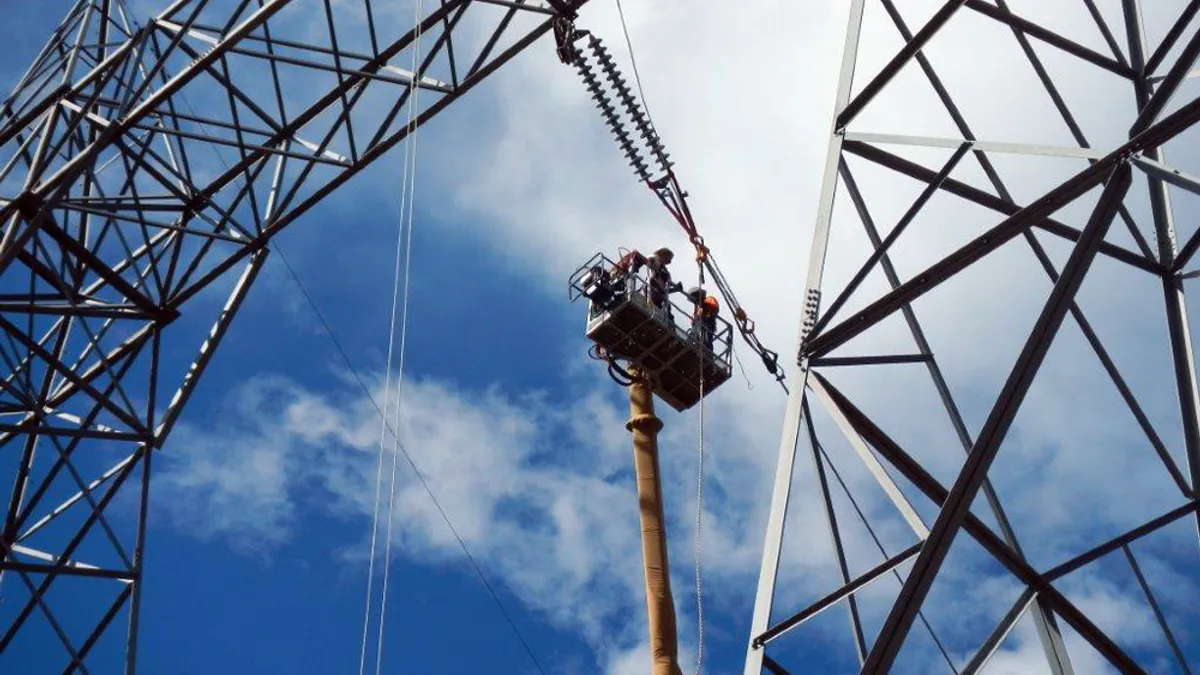Dive Brief:
-
More than 750,000 households had their power disconnected during COVID-19 across ten states for which data is publicly available, with the greatest impacts centered in southeastern states including Georgia, Florida and the Carolinas, according to an analysis from the Center for Biological Diversity.
-
Georgia Power disconnected 131,000 residential customers between July 2020 and January 2021, but shutoffs have since reached pre-pandemic levels, which averaged 19,000 residential customers per month, according to a company spokesperson.
-
In addition to highlighting the disparities created by states' varied approaches to shutoff moratoriums during the pandemic, Mark Wolfe, executive director of the National Energy Assistance Directors' Association, said the Center's report illustrates existing economic disparities and the need for improved reporting of shutoff data.
Dive Insight:
An effort by the Center for Biological Diversity to quantify the number of Americans who had their power shut off during COVID-19 may not be comprehensive, but it does illustrate the two Americas that emerged during the pandemic, according to Wolfe.
The report, released earlier this week, focuses on just ten states due to the lack of publicly available data, according to Greer Ryan, the author of the report and an energy policy analyst at the Center for Biological Diversity. Ten other states had no shutoffs due to emergency moratoriums, leaving about 30 states for which Ryan said she was unable to obtain data.
Even so, Wolfe said, the report paints a stark picture of the discrepancies that unfolded across the U.S. in 2020 as a result of differences in policy and prosperity. While some states, including Georgia and Florida, reported hundreds of thousands of disconnects during the pandemic, in others only a few thousand residents were reportedly cut off.
"What the paper is really saying, is we have two different countries here," Wolfe said. "One part of the country with strong protections, and one weak. There's no concern in New York or California. The concern is in Georgia."
A spokesperson for Georgia Power confirmed that the company had disconnected 131,000 residential customers during the pandemic, but noted that disconnects have returned to pre-pandemic levels and that the utility has worked with its customers and with government and non-profit partners to try to keep households' power on during the crisis. Around two-thirds of customers were connected within a day or two of being disconnected, and properties that were not quickly reconnected were often found vacated without notice.
"Georgia Power has recognized the extraordinary burden our customers have faced since the pandemic began," a company spokesperson said in a statement.
Wolfe said he felt it important not to demonize or blame individual utilities for the shutoffs. Utilities, he said, often face the same social and economic inequities that contributed to the disconnection imbalance in the first place.
"This is really a social problem, and utilities are not social service agencies," Wolfe said, explaining that states like Georgia have a lot of residents living in poverty and, consequently, fewer social resources to draw on for those in need of help. "If we want utilities to have a statewide moratorium, or better discounts for low income families, the money has to come from someplace."
Wolfe said that with new federal support on the way as a result of the latest stimulus, he hoped utilities could hold off on additional disconnections until those funds become available.
Both Wolfe and Ryan said they hope to see more states reporting disconnect data in the future, as Wolfe said this data could prove useful as an indicator of economic distress.
"A family won't let its power be shut off as a game," Wolfe said. "Usually you're in a very dire state if your power has been shut off."













